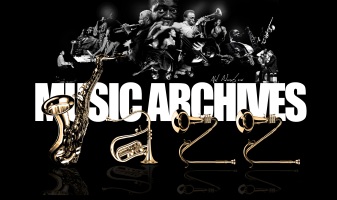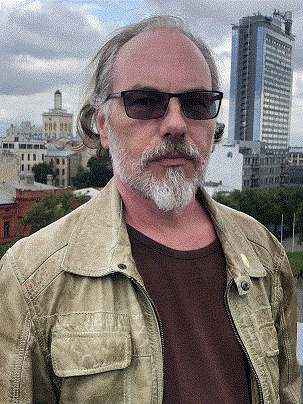
 |
A guide to the Cape Town International Jazz Fest |
Post Reply 
|
| Author | |
snobb 
Forum Admin Group 

Site Admin Joined: 22 Dec 2010 Location: Vilnius Status: Offline Points: 28464 |
 Post Options Post Options
 Thanks(0) Thanks(0)
 Quote Quote  Reply Reply
 Topic: A guide to the Cape Town International Jazz Fest Topic: A guide to the Cape Town International Jazz FestPosted: 23 Mar 2017 at 12:12am |
With five stages, 40 acts spread over two days and more than 30,000 fans expected, the Cape Town International Jazz Festival can be a bewildering, if exhilarating, experience. Here’s a guide to the fourth-largest jazz festival in the world and some performances worth catchingCape Town International Jazz Festival director Billy Domingo is fond of describing the event as a "lifestyle festival". And over the years — this will be its 18th iteration — the range of nonconcert festival activities has grown exponentially. In the week before the festival, Cape Town offers a golf day and a jazz and fashion gala (March 30), as well as the joyous atmosphere of the free community concert featuring festival artists on Greenmarket Square (March 29). A programme of jazz-related workshops that began for Cape Town high-school music learners in February includes prebooked seminars for arts journalists, photojournalists and others throughout the week, which will end on Sunday April 2 with the launch of a jazz project in Langa. The Artscape complex hosts a music photography exhibition that opens on March 30. The festival itself is staged at the Cape Town International Convention Centre on Friday March 31 and Saturday April 1, with four concerts a night on each of the five stages, surrounded by a sizeable village of corporate hospitality tents, plus refreshment, craft, memorabilia and music stalls. Check programme times carefully and make a plan, as your preferred acts on different stages will almost certainly clash or overlap. This is the largest venue: a cavernous ground-floor hall with seating and open space, and very variable sound quality. Not defined by genre, Kippies is the stage for big bands, or for the acts likely to attract large crowds of people who want to dance. On March 31, Kippies opens with the seductive southern rhythms of saxophonists Moreira Chonguica (from Mozambique) and Manu Dibangu (Cameroon), and closes with the SA sounds of distinguished veteran composer/trombonist Jonas Gwangwa. Sandwiched between these is music from the most talked-about American reedman of 2015/2016. Kamasi Washington’s debut, the three-volume, large-ensemble album The Epic, hit the top three in the Billboard Jazz Albums chart and won the 2016 American Music Prize, in addition to multiple other accolades. On April 1, Kippies hosts, among others, vocalists Judith Sephuma (SA) and Andra Day (US), whose "Rise Up" became an anthem for the #BlackLivesMatter movement. The Bassline is usually dominated by music related to hip-hop and rap, and attracts a predominantly young crowd. This year’s Bassline acts are diverse, ranging from the intense, thoughtful mixes of the UK’s Tom Misch on Friday to the assertive SA social commentary of Dope Saint Jude on Saturday. Saturday also acknowledges hip-hop history, presenting the reunion of landmark 1990s outfit Digable Planets, whose work at the interface of hip-hop, jazz and black history produced the 1993 Grammy-winning "Rebirth of Slick (Cool Like Dat)". This informal outdoor area lets its mainly standing audience sample all the music genres on offer. It’s also a convenient space in which to refuel on food and drink while still absorbing good music. Close to the stage, the sound is usually adequate; further away — on a windy night — the Cape Doctor snatches it. Manenberg always opens with a school or development band, offering the chance to spot tomorrow’s stars. This year, the stage may be the place for nostalgics, with SA’s Mango Groove and America’s En Vogue appearing on Friday and the Soweto String Quartet and The Rudimentals on Saturday. Saturday also showcases new music: Music of Black Origin and Urban Music Award-winning British singer Laura Mvula and LA-based Grammy nominees The Internet, whose style, while often labelled neo-soul, resists easy categorisation. In addition to the group’s five successful EPs (most recently Ego Death), co-founder Syd "Tha Kyd" Bennett has just released a highly praised solo album, Fin. Programming at this upstairs sit-down venue reflects the eclectic creativity of the young pianist after whom it is named. It houses edgy jazz and intriguing music from around the world, and is the place where audiences are often surprised by off-the-beaten-track musical discoveries. On Friday, the venue’s character is reflected by veteran SA multi-instrumentalist Pops Mohamed, who explores the intersections between Khoisan music and contemporary SA sounds, and by visiting duo Taylor McFerrin and Marcus Gilmore. McFerrin, son of Bobby, began combining his skills as a producer, vocalist, keyboard player and more with those of DownBeat magazine’s rising star jazz drummer Gilmore for the 2014 album Early Riser. The two continue to develop new material for every tour. On Saturday, the Molelekwa stage might tempt listeners to stay all night. The stage opens with Darren English, a young SA trumpeter who has made a major impact in the US, where he studied. He is followed by Jokko, a pan-African supergroup of acclaimed instrumentalists melding the sounds of balafon (wooden xylophone), ribab (Berber lute) and traditional African strings with bass, percussion and drums. Vocalist Nomfundo Xaluva then explores the SA jazz landscape, before Argentinian ensemble Escalandrum closes the night with modern jazz interpretations of the classic tango repertoire led by Daniel Piazzolla, the grandson of the legendary Astor Piazzolla. Rosies is the only sit-down theatre venue at the festival. To control numbers, a supplementary advance ticket must be purchased for each show. There is a Computicket outlet selling these in the festival foyer, but be warned: popular acts sell out quickly. Checking tickets often produces irritatingly long queues, but the end result is a quiet hall, freer than other stages from disruptive audience movement, and it has the festival’s best acoustics. Rosies has a reputation as the "pure jazz" stage, but this year’s line-up demonstrates how meaningless that label is. On Friday, the stage opens with SA reedman Buddy Wells and closes with award-winning American vocalist Gretchen Parlato. But they book-end an international collaboration between trumpeter Marcus Wyatt and Indian master musicians Deepak Pandit and Ranjit Barot, and a set from Standard Bank Young Artist Siya Makuzeni, whose compositions invoke traditional Xhosa vocalese and digitally manipulated sounds. On Saturday, US saxophonist Rudresh Mahanthappa opens with the award-winning Bird Calls ensemble. The evening also includes SA-Swiss collaboration Skyjack, while Thandiswa Mazwai closes the festival with material from her release, Belede. Mazwai’s audience appeal would usually place her in Kippies, but her ensemble on Belede comprises pianist Nduduzo Makhathini, bassist Herbie Tsoaeli and drummer Ayanda Sikade, and demands Rosies’ jazz space. For the full festival programme, see from www.businesslive.co.za |
|
 |
|
Post Reply 
|
|
|
Tweet
|
| Forum Jump | Forum Permissions  You cannot post new topics in this forum You cannot reply to topics in this forum You cannot delete your posts in this forum You cannot edit your posts in this forum You cannot create polls in this forum You cannot vote in polls in this forum |